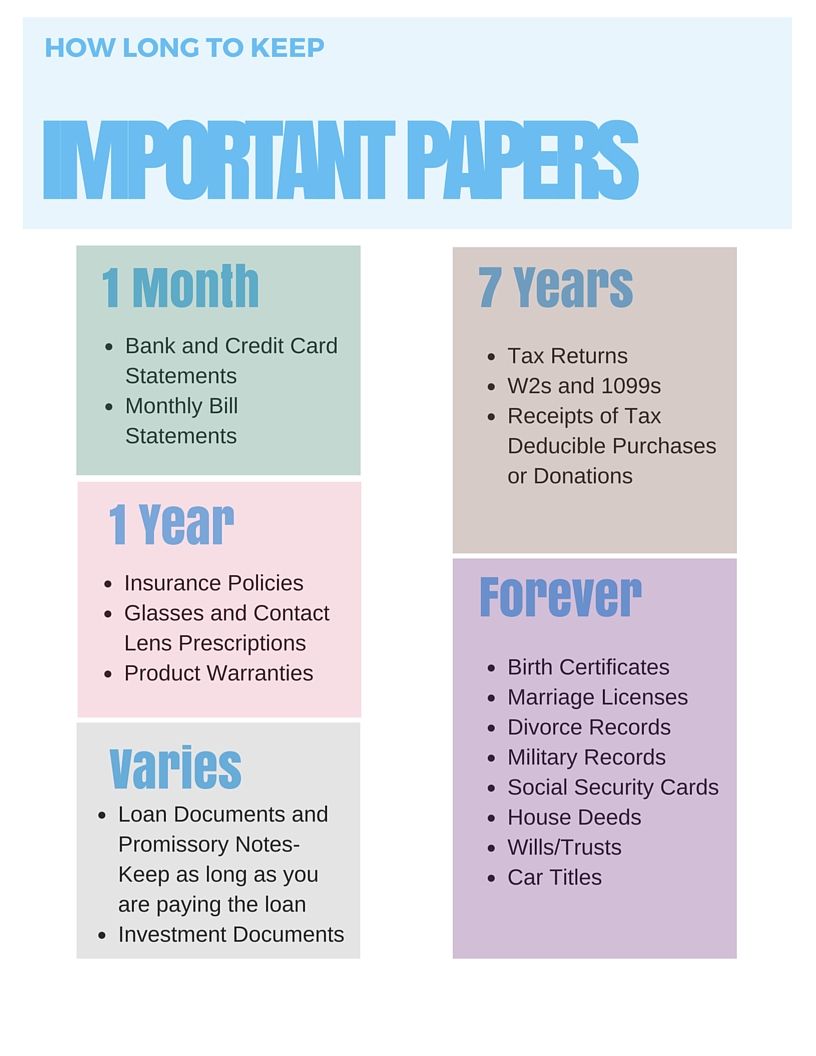7 Essential Paperwork Retention Tips for Homeowners

Managing paperwork is crucial for homeowners, especially as it relates to your home's value, maintenance, and legal records. Keeping the right documents can save you money, provide peace of time during tax season, and protect your property rights. Here are seven essential tips to help you retain and organize your crucial documents effectively.
Prioritize Important Documents

Not all documents require the same level of attention. Understanding which paperwork to prioritize is key:
- Mortgage Documents: Deeds, mortgages, and agreements with lenders should be kept indefinitely as they define your ownership and rights over the property.
- Home Inspection Reports: These reports help in addressing pre-purchase conditions or during sale negotiations.
- Home Improvement Records: Store receipts, warranties, and permits for any improvements or repairs for tax purposes and to increase your home’s resale value.
- Tax Records: Keep property tax statements and bills related to the home for at least three years after filing taxes.
📝 Note: Digital backups of essential documents like deeds or inspection reports can be a good safeguard, but remember to update them when changes occur.
Create a Safe and Accessible Storage System

Choose a method to store these documents securely:
- Safe or Fireproof Box: Ideal for important legal documents.
- Home Office: For documents you need to access frequently.
- Cloud Storage: Secure online solutions for digital copies.
Use labeled folders, boxes, or digital folders for easy retrieval. Make sure your safe storage system is accessible to you but also protected against unauthorized access.
Organize Documents for Legal and Tax Purposes

To prepare for legal or tax-related issues:
- Keep an organized record of all receipts, warranties, and contracts.
- File copies of all agreements like landscaping, roofing, or appliance warranties, which can be valuable during claims.
- File property tax bills and records of improvements that could qualify for tax deductions.
Know When to Purge Documents

Here’s how to manage your documents:
- Permanent: Keep deeds, wills, and power of attorney documents indefinitely.
- Tax Records: Hold onto tax records for at least three years after filing.
- Insurance: Retain insurance policies for as long as they are valid.
- Utility Bills: Keep recent bills for billing disputes or moving out.
Use a shredder or secure disposal methods for sensitive documents you no longer need to protect against identity theft.
Set Reminders for Review

Regularly reviewing your paperwork ensures you’re up-to-date:
- Set reminders to review mortgage statements, insurance policies, and tax documents annually.
- Check expiration dates on warranties and renew if necessary.
- Ensure all digital copies are backed up and secure.
This review also provides an opportunity to update your records with any new agreements or changes to existing documents.
Understand Digital Documents

In the digital age, managing paperwork includes digital documents:
- Scan and store digital versions of important documents to reduce paper clutter.
- Ensure these digital files are accessible by setting up a clear naming and folder structure.
- Use secure cloud services for storage, and remember to keep login credentials safe.
💾 Note: Regularly update software to ensure the security of your digital documents against cyber threats.
Legal Considerations

Be aware of legal implications:
- Know the statutes of limitations for tax records, contracts, and warranties in your jurisdiction.
- Have a plan in place for transferring or storing documents if you move or sell your home.
- Understand the privacy laws around digital documents and how they apply to your storage methods.
In wrapping up, the key to managing your home's paperwork is understanding what documents are most important, how to store them safely and accessibly, and when to let go of outdated documents. Regular reviews, understanding legal considerations, and embracing digital solutions are all part of a homeowner’s responsibility. Your well-maintained paperwork can save you from future headaches, maximize your tax deductions, and protect your investment in your home.
How long should I keep utility bills?

+
Keep recent utility bills for at least one year. However, if they pertain to moving out or settling disputes with service providers, retain them for longer or until the issue is resolved.
Is it necessary to keep all warranty documents?

+
Yes, keeping warranty documents can be beneficial for claims or when selling your home. File them in an accessible place and review them periodically for expiration dates.
Can I store important documents digitally?

+
Yes, using secure cloud storage for digital copies can be effective, especially with regular backups and updates. Ensure you follow best practices for digital security.
What should I do with documents when I move or sell my home?

+
Transfer essential documents like deeds to the new owner or take them with you. Purge unnecessary documents securely, and update or cancel insurance and utility services as appropriate.



